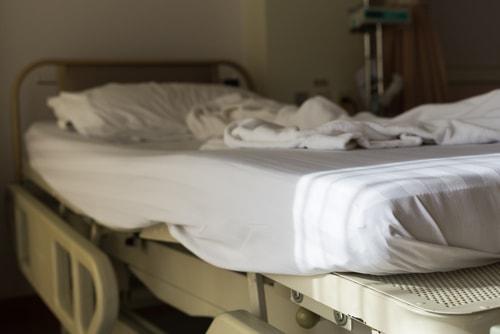Government Cuts Payments to Nursing Homes With High Re-Hospitalization Rates
 While nursing homes are often seen as hospital-type facilities, a nursing home is not a hospital. Hospitals provide acute care for patients who require it, with doctors largely taking responsibility for overseeing each patient. A nursing home or skilled nursing facility provides 24-hour care at a comparatively lower level than that available in a hospital, with nurses generally providing patient oversight.
While nursing homes are often seen as hospital-type facilities, a nursing home is not a hospital. Hospitals provide acute care for patients who require it, with doctors largely taking responsibility for overseeing each patient. A nursing home or skilled nursing facility provides 24-hour care at a comparatively lower level than that available in a hospital, with nurses generally providing patient oversight.
It is not uncommon for a patient in a nursing home to require hospitalization from time to time, but recent reports suggest that too many nursing home patients are being discharged from the hospital only to end up back in the hospital within 30 days. These readmissions are so concerning that the federal government has announced it would be altering Medicare payments to nearly 15,000 nursing homes and skilled nursing facilities across the country based on how often residents went back to the hospital within a month of leaving. As a result, some 4,000 facilities will get bonuses while almost 11,000 will have their payments lowered.
Preventable Admissions
According to several analyses, the hospitalization of nursing home patients has been decreasing over the last few years. Experts say that in 2016, however, 11 percent of nursing home-to-hospital admissions could have been avoided with better medical care in the nursing facilities—many of which included patients who went back to the hospital after a prior admission and discharge
Readmission rates have long been factors in Medicare payments to hospitals, but this is the first time that they will be considered in regard to nursing home payments. Throughout the 2019 fiscal year—which started on October 1 and runs through September 2019—nursing homes with lowest or best hospital readmission rates will be paid 1.6 percent more for each resident on Medicare. Those with the highest or worst rates will have almost 2 percent docked from each Medicare payment. Those in between will be rewarded or punished on a sliding scale.
For-Profit Homes Perform Worse
A Kaiser Health News examination of the government’s data found that for-profit nursing homes will feel the sting more strongly, on average, compared to nonprofit or government-run facilities. Currently, for-profit nursing homes comprise about two-thirds of all nursing facilities in the country.
Government officials are hopeful that the program will create incentives for poor-performing facilities to make improvements. They also say that nursing homes around the country knew that this program was coming, so they had the chance to prepare in advance. Unfortunately, many nursing homes run on extremely tight budgets, so there is some concern that the reduced Medicare payments could have the opposite of the intended effect. Skeptics claim that with less money available, poor-performing homes will not have the capital to make the necessary improvements and that the problems are only going to get worse. They are also worried that some homes will refuse to send patients in need of care to the hospital so as to lower admission and readmission rates and improve their numbers that way.
Call a Chicago Nursing Home Injury Lawyer for Help
If you have a loved one in a nursing home who has been in and out of the hospital several times, there may be cause for concern. Contact an experienced Illinois nursing home neglect attorney to discuss your case and your available options. Call 312-535-4625 for a free consultation today.
Sources:
https://www.npr.org/sections/health-shots/2018/12/01/672075842/medicare-to-cut-payments-to-nursing-homes-whose-patients-end-up-back-in-the-hosp
https://khn.org/news/medicare-cuts-payments-to-nursing-homes-whose-patients-keep-ending-up-in-hospital/

 312-535-4625
312-535-4625





